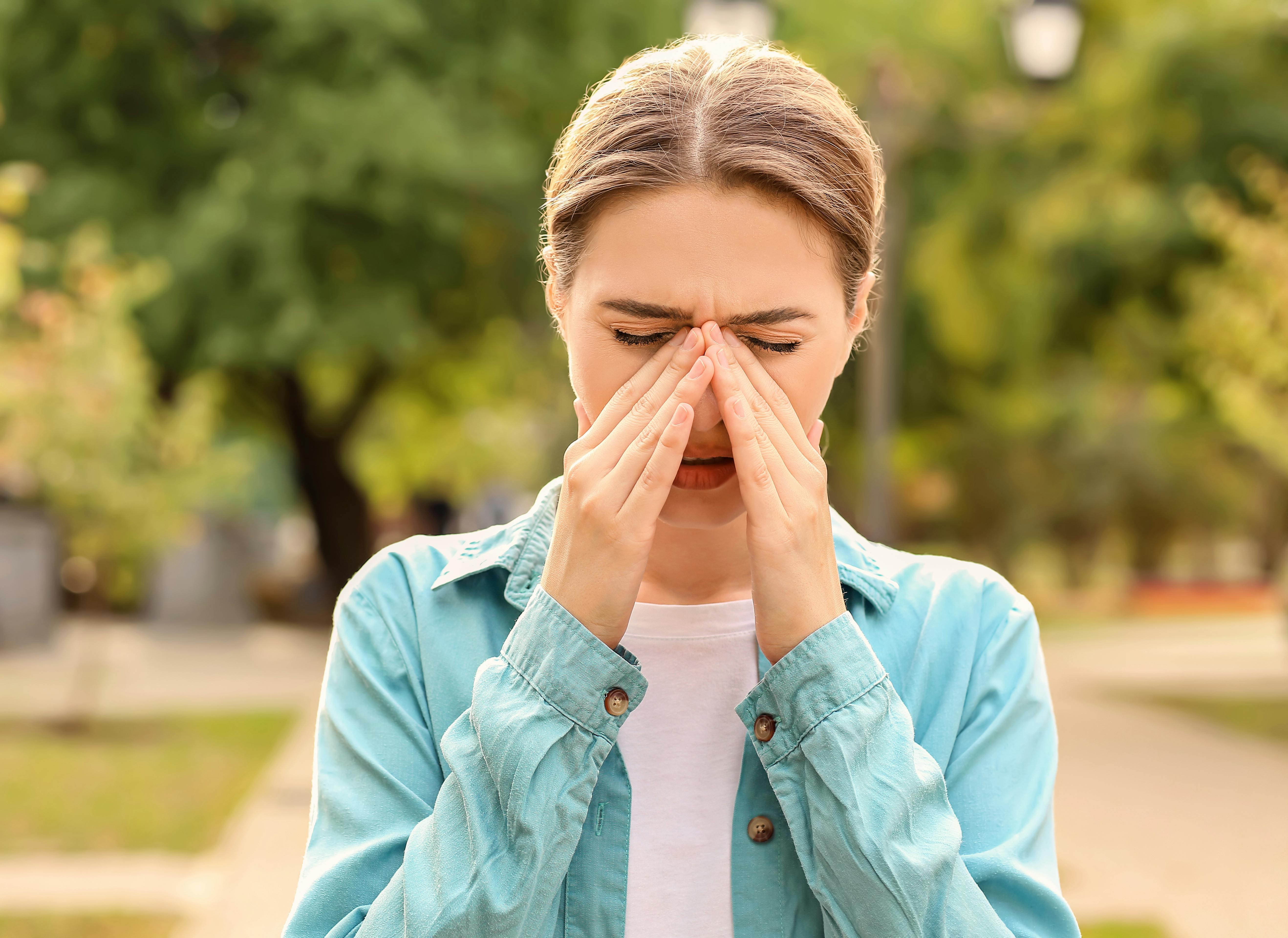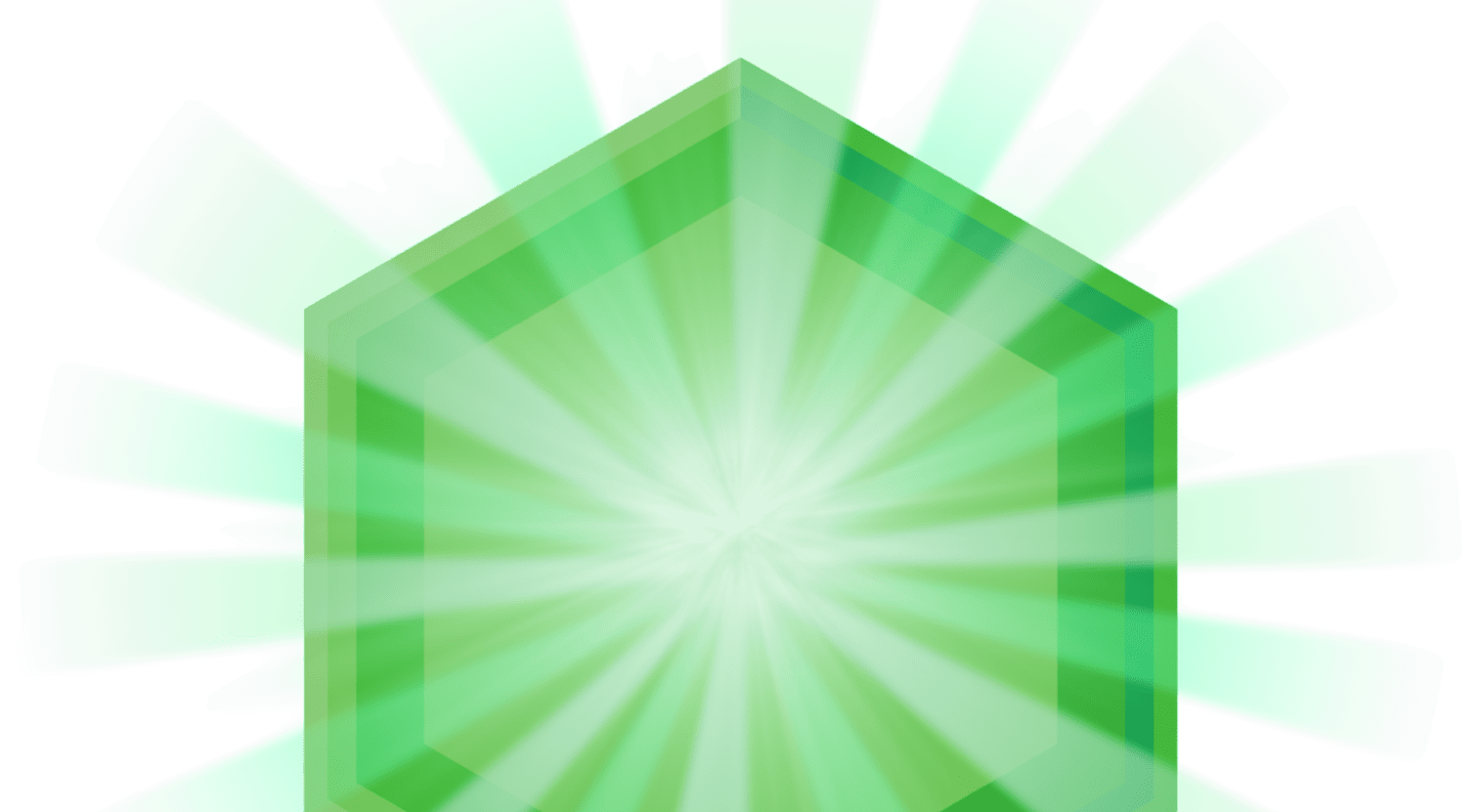
Allergy Headaches vs. Migraines
Headaches are one of the most common maladies: up to 80% of North Americans gets headaches from time to time, with 50% experiencing at least one headache per month.1
Similarly, if you’re suffering from allergies or sinus problems, chances are that one of the symptoms of your allergy is a headache.1
Many people suffer from migraines, too: about 12% of Americans experience migraines.3 These are not just a bad headache: instead, they feel like a pulsing pain on one side of your head and can be triggered by outside stimuli like bright lights and loud noises.3
Not all headaches are caused by the same reasons. See what the difference is between a headache caused by allergy symptoms versus migraines, and how Flonase can help you alleviate nasal congestion and reduce your allergy symptoms.
What is an allergy headache?
Certain allergies can cause headaches, and one of the allergies that can lead to sinus headaches is rhinitis, also known as hay fever.1 A sinus headache can occur when there is a bacterial infection in one or more of the sinuses in your head.1 When the sinuses are infected, it can lead to a feeling of pressure around the eyes, cheeks, and forehead.2
However, sinus headaches are often confused with migraines because they both happen around similar locations in your head.1 Specialists often consider headaches caused by sinuses fairly rare, and oftentimes many patients who appear to have sinus headaches are actually suffering from migraines.1
How migraines differ from allergy-induced headaches
Migraines and headaches from sinusitis are often mistaken for each other, because the signs and symptoms of the two types of headaches may seem similar or overlap.2
However, migraines may involve more than just severe head pain. The headaches may be accompanied by symptoms like fatigue, nausea, changes in one’s vision, and irritability.3
Migraines can also be triggered by external factors, which may include:3
- Medications
- Hormonal changes
- Changes to sleep
- Changes in weather condition
- Physical activity or overexertion
- Substances like caffeine or tobacco
- Exposure to bright lights, loud noises or strong odors
A migraine headache can last up to 72 hours.3 However, a sinus headache can last days or longer, and may follow respiratory infection or cold.2 A sinus headache can also be accompanied by thick, discolored nasal mucus.2
Headaches and nasal congestion
The relationship between migraines and allergies is still unclear.4 Sometimes, healthcare professionals misdiagnose sinus headaches as migraines.2 Migraines may be more recognizable in patients suffering from allergies, since allergies can worsen migraine symptoms.4 Patients who experience nasal issues such as blocked passages should visit an allergist to test what they may be allergic to and get help managing their symptoms.1
While Flonase doesn't treat migraines or sinusitis, it provides relief from nasal congestion as well as other allergy symptoms. Once-daily FLONASE nasal sprays deliver 24-hour relief from your most bothersome allergy symptoms, including: nasal congestion, itchiness, sneezing, and runny nose. Be sure to treat your allergy symptoms before they disrupt your quality of life.
Source Citations:
- Headaches Connected to Allergies and Sinus Problems. American Academy of Allergy, Asthma & Immunology. https://www.aaaai.org/tools-for-the-public/conditions-library/allergies/headaches-connected-to-allergies-and-sinus-problem/. Accessed 4/26/2024.
- Sinus Headaches. Mayo Clinic. https://www.mayoclinic.org/diseases-conditions/sinus-headaches/symptoms-causes/syc-20377580/. Accessed 4/26/2024.
- Migraine: What It Is, Types, Causes, Symptoms & Treatments. Cleveland Clinic. https://my.clevelandclinic.org/health/diseases/5005-migraine-headaches. Accessed 5/31/2024.
- Migraine, Allergy, and Histamine: Is There a Link? National Library of Medicine. https://www.ncbi.nlm.nih.gov/pmc/articles/PMC10218803/. Accessed 4/26/2024.



